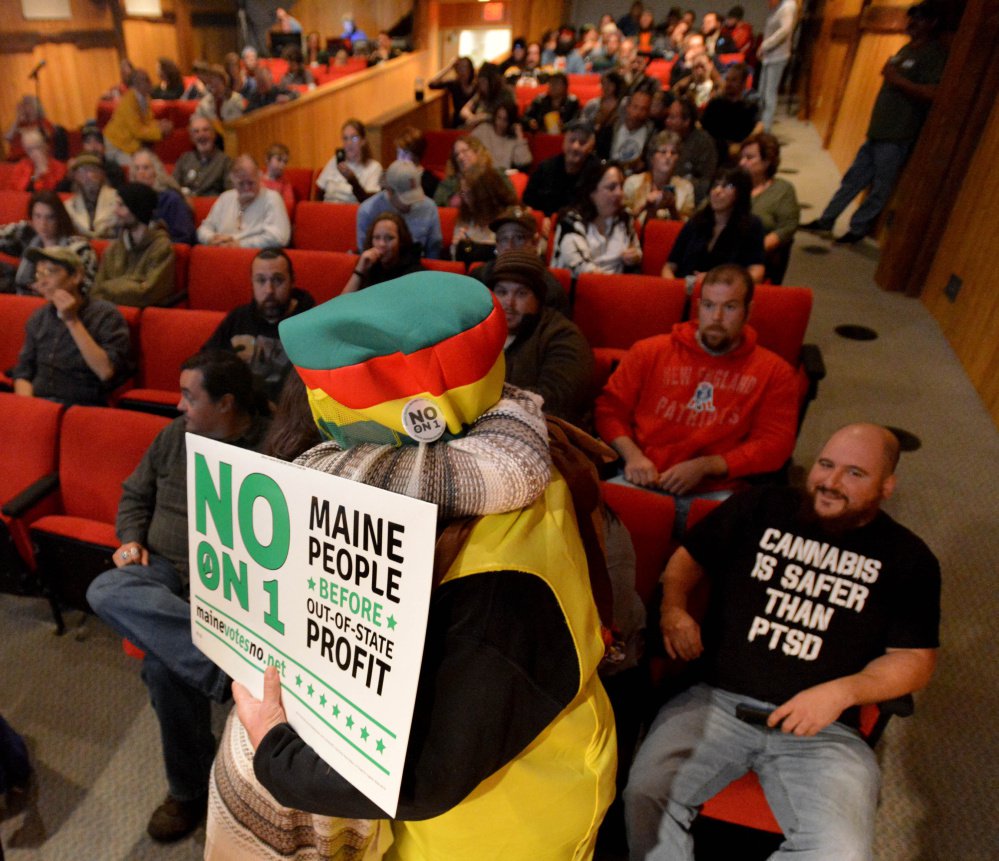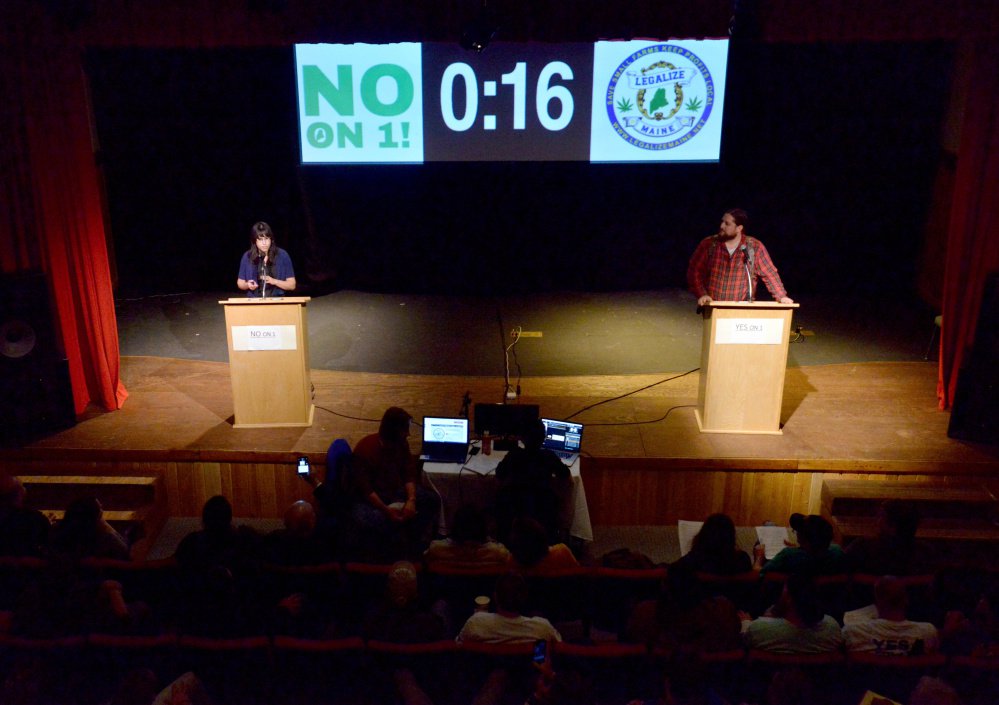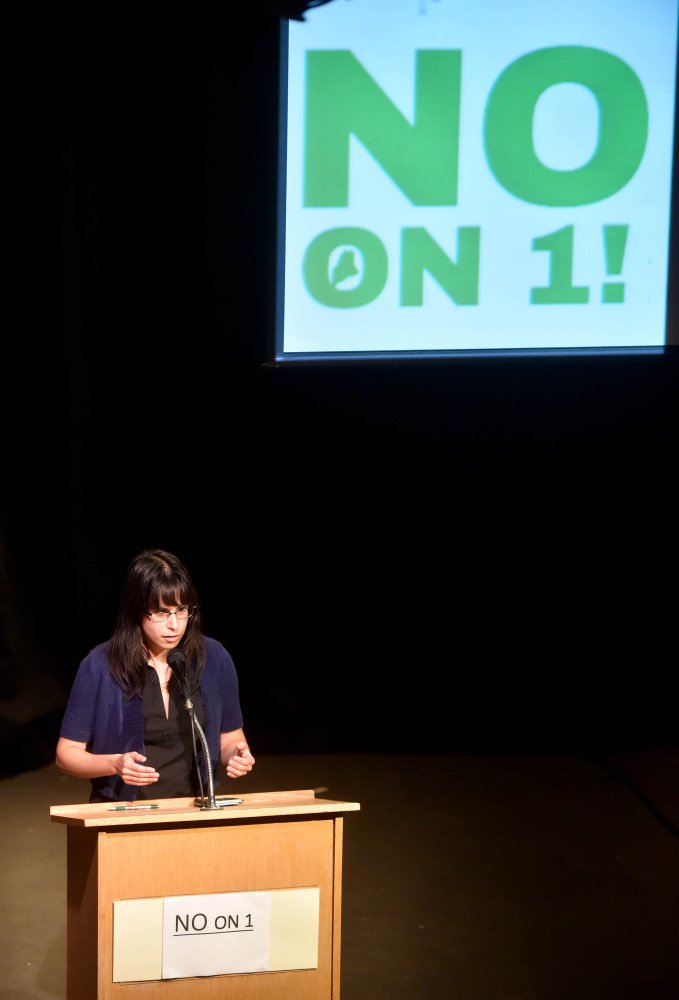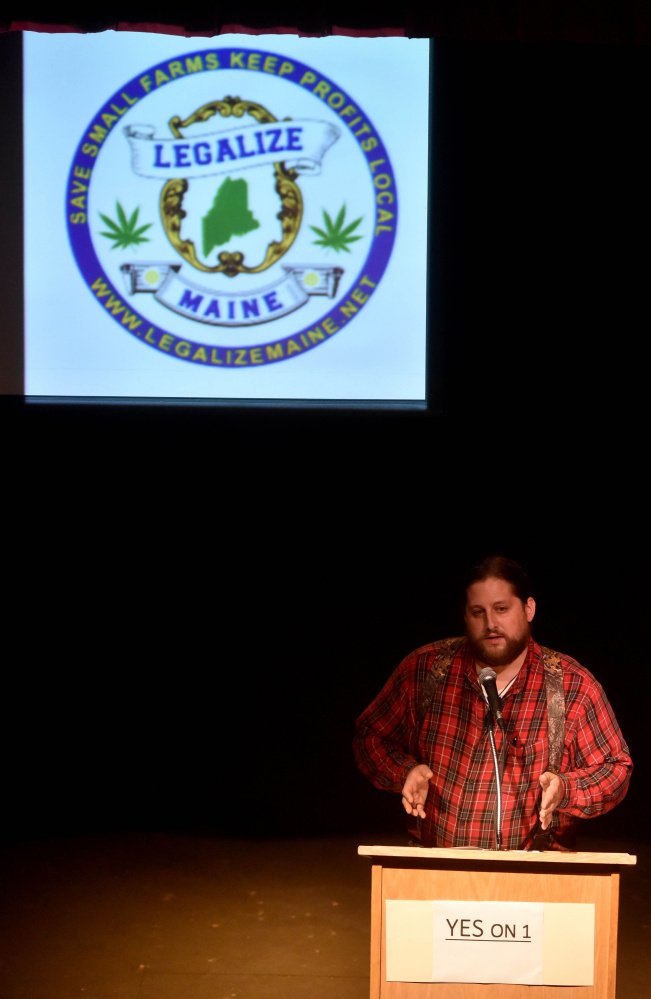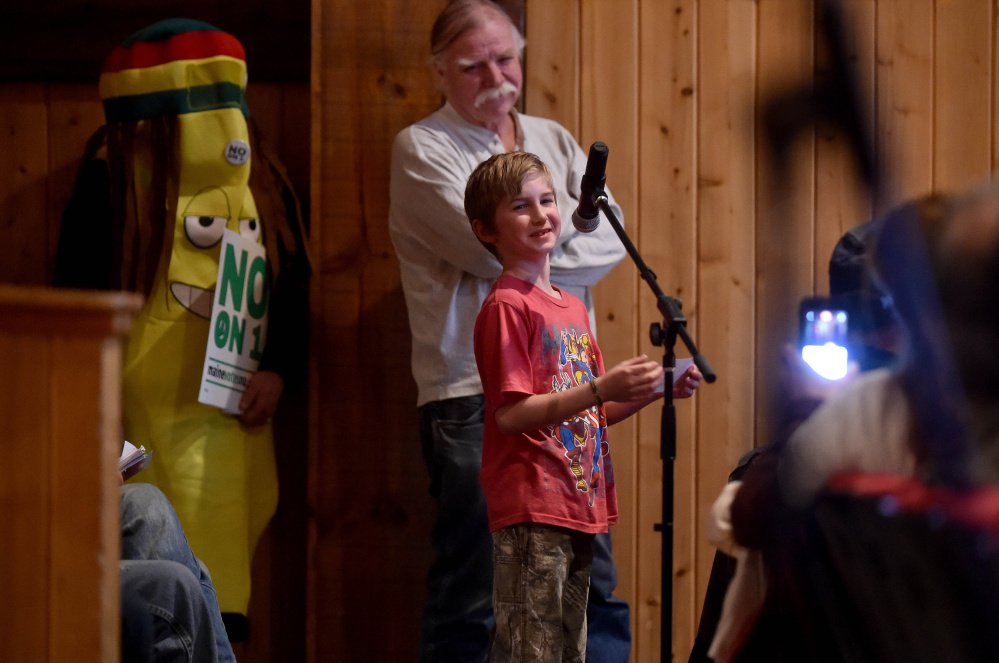Two advocates who previously worked to legalize medical marijuana in Maine together debated the hot topic of recreational marijuana legalization initiative Question 1, taking questions from a raucous audience that ranged from children to medical marijuana caregivers.
The debate was held at Unity College Performing Arts Center, which was nearly full to its capacity of about 100 people and smelled faintly of marijuana. A wide variety of people turned out for the event, including families, students, caregivers and a man dressed as a Rasta banana.
Hillary Lister of Maine Matters spoke against the passage of Question 1 and Paul McCarrier spoke in support its passage. While the debate began civilly, by 8 p.m. audience members were interrupting McCarrier and yelling.
At one point, McCarrier said he thought he’d see “more compassion” from the medical marijuana community. Members of the audience booed and yelled out “Don’t let him bait us!” The host of the debate said he was disappointed to learn that people had put Yes on 1 stickers in the toilet.
Lister’s main problem with the legislation is the limit placed on the statewide plant canopy, which would be 800,000 square feet.
McCarrier said the limit was written into the referendum question so that legislators and “government bureaucrats” couldn’t create their own limits.
Lister said the model would restrict access in long-run and potentially hurt people who are in the medical marijuana community now.
For example, Question 1 contains measures for further regulations for people who sell marijuana, including labeling and testing. Lister said that it’s appropriate “to scale,” and that neighbors who grow for each shouldn’t have to bear the extra costs.
However, when one person asked why the Yes on 1 campaign had such a sense of urgency that this must pass, McCarrier said that if it fails legislators won’t have faith to draft a bill.
“They’re going to look at that and say Mainers don’t want legalization,” he said. He also pointed out that only two conditions had been added to the list of qualifying conditions for medical marijuana and that legalization was needed to reduce people’s fears and help research.
But Lister said people are telling their legislators that they are pro-marijuana but against Question 1.
“It doesn’t mean we’re against cannabis, it just means we’re against this particular business model,” she said.
The audience also was interested in how the proposal would affect medical marijuana caregivers and patients.
McCarrier told one man that he would be able to in essence double dip if Question 1 passed and get 2.5 ounces, the allowable amount of processed marijuana for medical patients, twice over, citing his rights as a medical marijuana patient and an adult over 21.
McCarrier also told a caretaker that he would have multiple options if the law passed, including keeping on with business as usual, becoming a recreational cultivator or opening an adult use facility in addition to his caretaking business.
Lister did not agree that legislators would allow an “open-ended” version of the law that would allow flexibility for caretakers and patients, as well as what she called “two contradictory business models.”
The law has regulations for tracking the amount of cannabis produced in the state to avoid it falling into the black market, which she said is too limiting and will hurt people who are currently caretakers.
“This is not the same playing field,” she said.
McCarrier said passing Question 1 will give Maine the chance to build up a cottage industry and increase tourism by nearly 5 percent. He said the state could make hundreds of millions of dollars if only a small percentage of tourists spent $50 on marijuana.
“This is gonna be a boon for the state of Maine,” he said, adding that Colorado has created 18,000 jobs since it legalized marijuana.
If it passes in Massachusetts, which is also asking voters whether to legalizing marijuana, and not in Maine, McCarrier said people and businesses will go there to build up tourism and this potential industry.
He also said that Question 1 would not hurt small businesses, and that big business is not coming into Maine because it has a low population and is at the “end of the pipeline.”
Lister rebutted by saying that Maine would continue to be the “plantation state,” where marijuana would be produced cheaply by a few big businesses and shipped out of state.
The proposed law says that 40 percent of all issued licenses will go to licensees of 30 unit blocks or less, and 60 percent of licenses will go to those that are larger, which has received some criticism.
Gov. Paul LePage’s administration is against big business and promoting large government contracts, McCarrier said
Lister said that while the growing of marijuana might not get government contracts, the companies that produce regulatory products that could be used for Question 1’s proposed regulations would be. There are companies that make child-safe packaging for marijuana, which is a requirement in the law, she said.
Send questions/comments to the editors.


